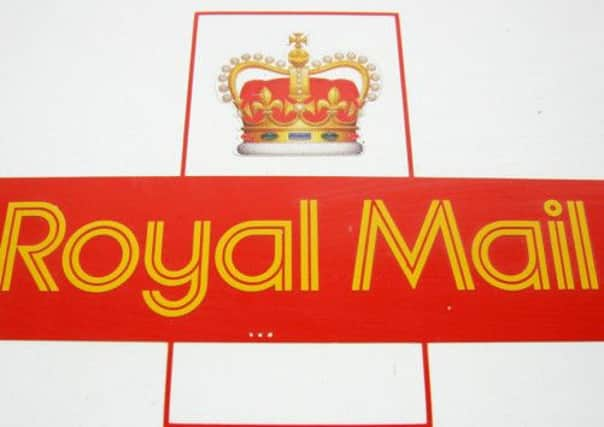Royal Mail: Brokers lined up for £3bn flotation


Chief executive Moya Greene has met a number of institutional investors in recent weeks to secure support for the share issue expected in the autumn. These include Camelot owner Ontario Teachers’ Pension Plan, and US funds Calpers (the Californian Public Employees’ Retirement System) and Calstrs (the California State Teachers’ Retirement System).
The government is expected to appoint joint brokers and frontrunners are thought to include Bank of America Merrill Lynch, Barclays, Goldman Sachs and UBS. But while Greene is convinced that a stock market flotation is the best option for the 497-year-old postal service, the government remains neutral. Business minister Michael Fallon last month said the government is “attracted” to a flotation and is “committed to a sale”, but “its structure and timing remain open”.
Advertisement
Hide AdAdvertisement
Hide AdThe union representing the Royal Mail’s 130,000 employees is opposed to the group’s privatisation. The Communication Workers Union (CWU) argues that the doubling of operating profits to £403 million revealed in last week’s results announcement showed that “modernisation in the public sector should continue”. Members have been sent a ballot on the privatisation plans that is due to come back next month.
Greene said: “I just don’t understand why they think government ownership is such a good thing,” pointing to examples of privatised universal mail services in Germany and Austria. The German government floated Deutsche Post in 2000, opening up a 29 per cent stake to investors. Following its acquisition of DHL, the group is still 29 per cent owned by the state-owned KfW Development Bank. Österreichische Post undertook a flotation in 2006, but is still majority owned by the Austrian government.
A spokesman for the Department for Business, Innovation and Skills said a decision on whether or not the UK government would maintain a stake in the Royal Mail was “still to be taken”.
A spokesman for the CWU insisted that the government was still deliberating on a trade sale, arguing that investors would be wary over its continuing profitability.
He said: “They are still not certain there is going to be an IPO [initial public offering]. Our understanding is two banks have been appointed because they are keeping their options open. One of the reasons they are nervous of the IPO is because profits have been achieved on price rises. It won’t have a long term positive impact because consumers will look for alternative products if prices continue to rise.”
It is thought the direction the government will take depends on market sentiment. All eyes are expected to be on Europe in the coming weeks after Belgian postal group Bpost last week announced plans to undertake an IPO expected to raise between ¤550m (£469.8m) and ¤900m, making it the fourth listed national universal postal service in Europe.
The flotation will be a secondary sale process after private equity group CVC Capital Partners acquired a 49.9 per cent stake in the postal service in 2005. CVC is expected to maintain a stake in the company and float off the rest – expected to be a stake between 25 and 30 per cent. The state is expected to keep its 50.1 per cent share in the business.